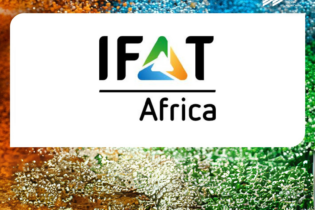Professor Loreta Feris does not mince her words, the water sector needs to change its approach to regulation if it sincerely wants to “turn the tide.”
By Duncan Nortier Prof Feris has had a vast career starting with her BA in law at Stellenbosch in 1988, leading her on a 28-year career path that includes working in UCT teaching and learning, language and social responsiveness committees, as well as working in several roles at the Washington College of Law, American University, Washington DC in the United States of America. She is currently the vice-principal academic, at the University of Pretoria.The transdisciplinary approach
Her keynote speech titled “How can we improve water governance from a transdisciplinary regulatory perspective” is a timely and topical address aimed at really getting to the bottom of turning the tide in South Africa. She notes that water governance is essential in course correcting the various failures over the years but points out an irony, “There is a lot of talk about water governance, but no one really defines it well. Definitions vary among institutions and this illustrates the problem. Before we continue we need to actually define what ‘water governance really’ is.” She puts forth a broad yet inclusive definition: The legal, political, economic, administrative, ecological, and cultural framework for the management and use of water as an interconnected ecosystem. This definition seeks to reframe water governance as an area that encompasses a plurality of perspectives.When drawing up policy and implementing change Prof Feris says that, “water is treated as a resource, and it is, but it is also a vital part of many people’s spiritual lives. So when we talk about water governance we need to be sensitive to the fact that it is not just a commodity, not just a resource but an integral source of life.” This is where we face the disconnect between big projects, delivering services and the very people these services are meant to help. For many people in South Africa, water is a promise, something that will come someday and that fact has driven deep suspicion of the government and its initiatives. People do not feel heard and are sometimes excluded from decisions that impact their life.
The solution Prof Feris says, “is a complex, messy, but vital change of approach. When the sector employs a multidisciplinary approach there are more opinions but no integration, when an interdisciplinary approach is adopted there is more integration but not enough focus, we need to move to a transdisciplinary approach.” What this means is a plurality of ideas and visions, that emulsify into a coherent and focused approach that includes perspectives that are often neglected.Climate and corruption
Context is always key, and when South Africa thinks of the challenges that it faces there are two “game changers” namely corruption and climate change. Within these contexts, the transdisciplinary approach situates itself as an answer to the various challenges presented by corruption and climate change.“We need to be honest, climate change is now what we live in, it is no longer something that we speculate about. There was a tornado in Durban just last week.” The effects of extreme weather are wreaking havoc on human lives, floods and droughts also cause damage to infrastructure which has a knock-on effect. When the issue of governance is raised it is important to begin by speaking the same language, we need to start speaking the language of restoration and protection. “Our current infrastructure needs to be cared for, people are hesitant of new projects because we regularly neglect our existing infrastructure”, says Prof Feris. Improved governance means understanding that climate change affects the most vulnerable first, and “treating water as a commodity neglects the fact that it is ecologically and spiritually valuable.” “If we really have to look at failures of the water sector, the heart of it is corruption,” says Prof Feris. A system does not fail by itself, a system fails because it is abused. Corruption around water is heartbreaking. Funding goes to help those who need it most and that funding disappears into the ether. Water is life, sanitation is dignity and is treated like a platitude, something said but not believed. While there is a need to pay for water, it is a human right and not a for-profit commodity. “Current governance has enabled a culture of corruption, we need accountability and transparency and most importantly a new culture built around these values.” The centralised approach to water has left itself vulnerable to corruption, and a decentralised, regulated approach could alleviate the symptoms of grand corruption. This centralised power has also disempowered water users, “We need to treat water users with respect. They should be a voice in the processes that affect their lives” adds Prof Feris. Humanising water governance includes, “listening to people, understanding that water holds value as a resource and as a source of life, and acting with people not on behalf of people whom we have not even consulted.” The need to involve communities, and hear a plurality of perspectives from inside and outside the sector is the key that Prof Feris says is missing from our current understanding and implementation of water governance.








